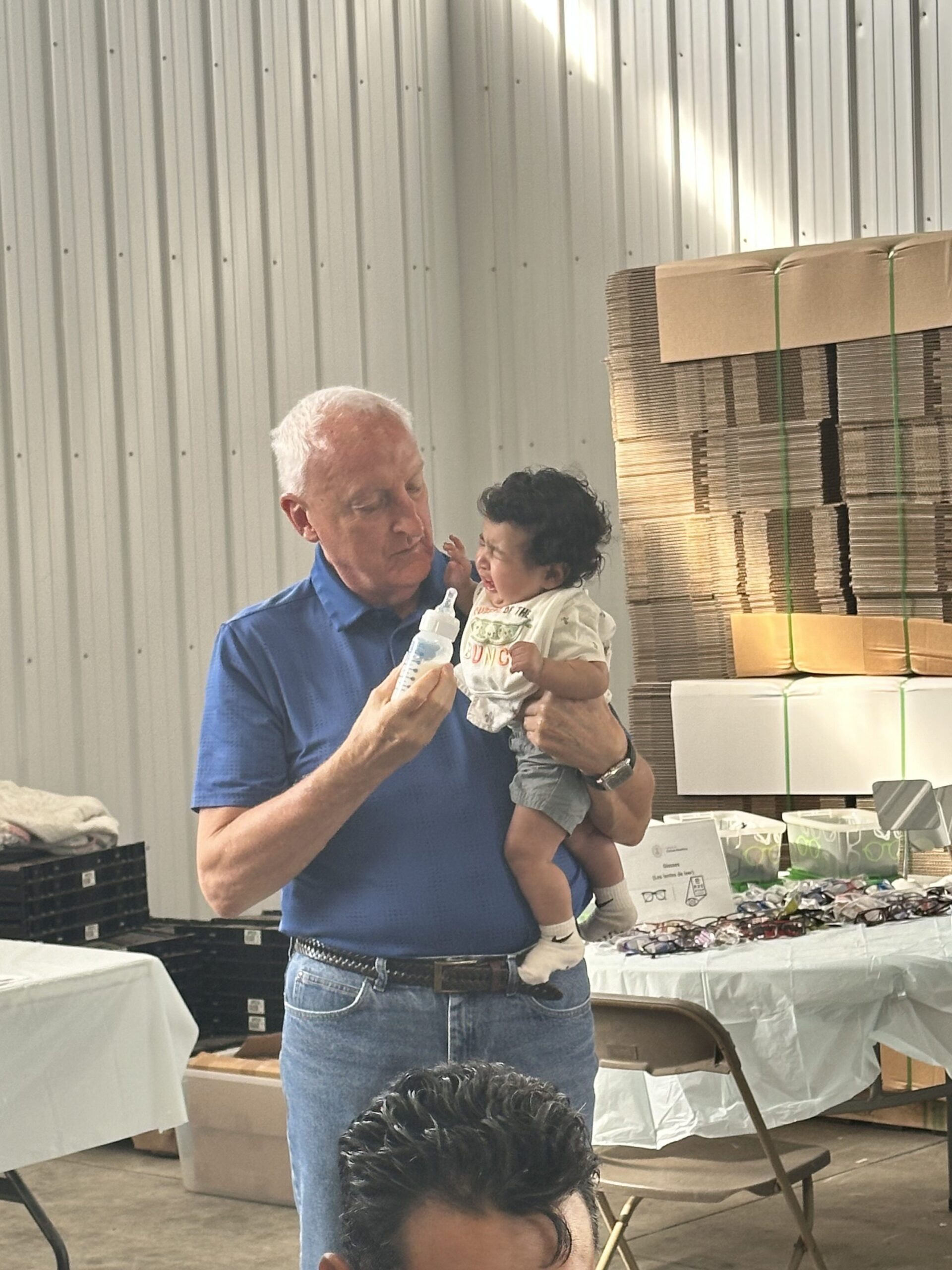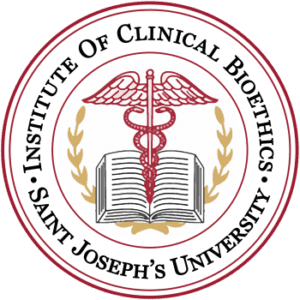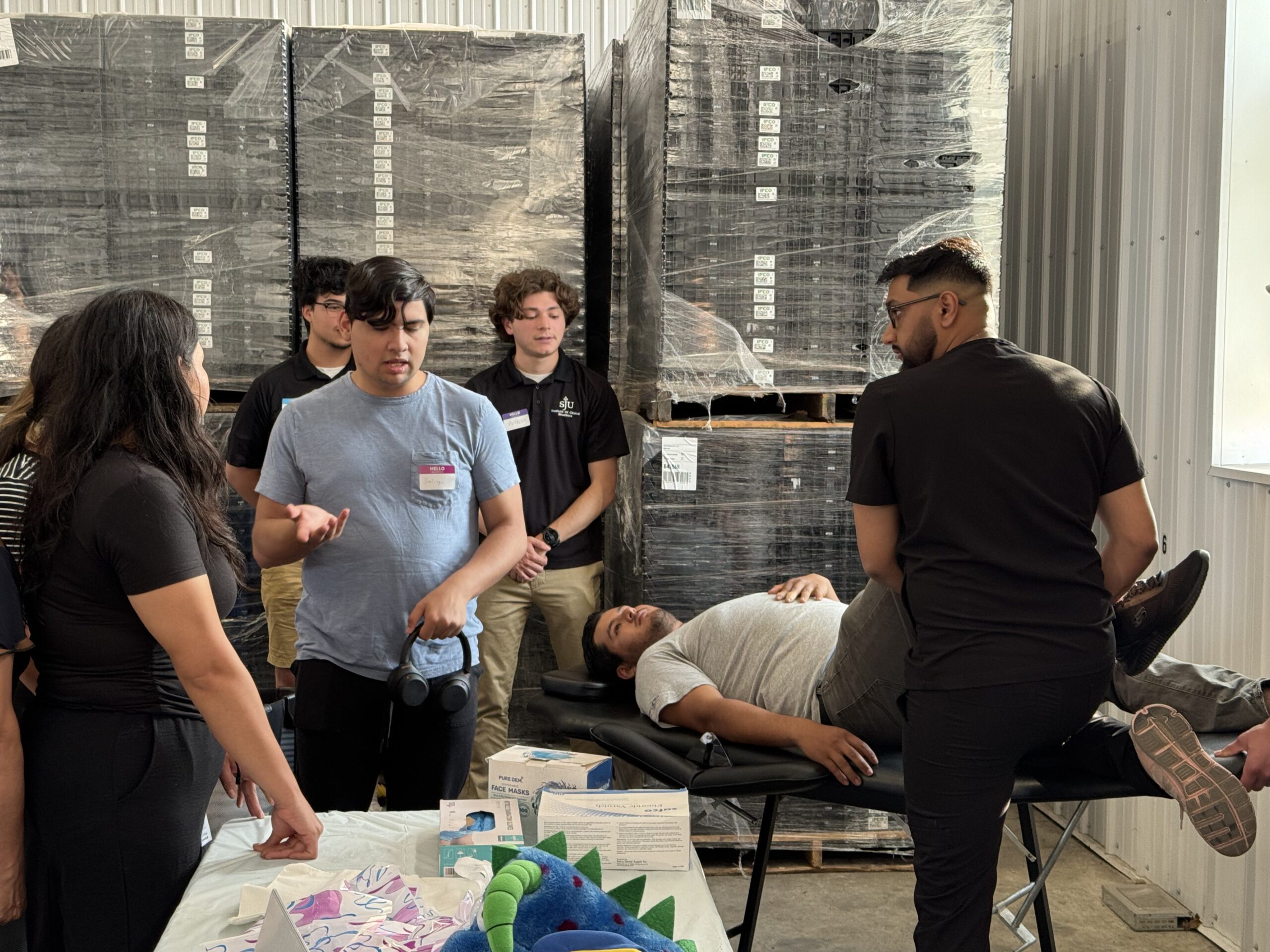Over the summer, undergraduate fellows Artiom Butuc, Isabel Mejia, Anthony Gargani, and Enoch Liu from the Institute of Clinical Bioethics took on leadership responsibilities as coordinators of the Mobile Health Promoter Program, continuing their dedication to medical justice and service. These fellows helped underprivileged and migrating communities in New Jersey and Pennsylvania by offering vital healthcare services through outreach events at Murphy’s Giving Market and Grasso’s Blueberry Farm. They share their personal experiences in the thoughts that follow, emphasizing the difficulties posed by language barriers, the value of cultural bonds, and the profound sense of fulfillment that comes from helping marginalized groups. Their experiences serve as an honor to the Jesuit principles of justice, compassion, and holistic care.
Artiom Butuc (Biochemistry, ’26)
Over the past month, I had a transformative experience volunteering at Murphy’s Market and Grasso Farm. Growing up in Northeast Philadelphia, I was constantly exposed to multiculturalism and had the privilege of working with people from diverse backgrounds. This is something that came back to me when I was at Murphy’s Market. As the first patients arrived, a diverse group of languages was represented, including Spanish, Creole, French, and even Bangladeshi. This is something I didn’t experience in any health promoter, and something I find empowering. Because people from all backgrounds seek basic healthcare and want to understand their health status, I was especially amazed by how many children were eager to learn CPR. Knowing my journey and interest in medicine, I understand that they began with personal CPR training. I hope that these healthcare events not only provide health equity but also inspire new generations to join the healthcare industry in the future.
The experience at Grasso’s farm was markedly different. Unlike at Murphy’s, the population there consisted solely of Spanish-speaking individuals. I was responsible for providing glasses to the people on the farm. Although I didn’t know Spanish, I found ways to communicate alternatively through hand gestures. Although it wasn’t always effective, it still brought some form of communication that helped me build trust with the population. Helping them understand that we are here for them and providing healthcare without a financial burden.
Isabel Mejia (Health Science, ’27)
Human rights–especially of minority populations- has always been an interest to me. I became particularly interested with the topic of migrant workers, even before coming to St Joe’s, after learning about the harsh realities they face: dangerous working conditions, lack of basic rights, and the frequent failure to enforce protective laws. Despite being the backbone of our agricultural system, their contributions often go unrecognized by the broader public. So when I had the opportunity not only to volunteer at the blueberry farm but also to help coordinate, I felt especially grateful.
To me, this promoter at the blueberry farm highlights the importance of caring for the most vulnerable, even if they are only here for a period of time. I believe this promoter helps students better understand this often-overlooked community. Volunteers are able to interact firsthand with patients and see the living conditions that the workers stay in. This experience allowed students to humanize the population and truly understand how much the farm workers have truly sacrificed to be here.
I was especially grateful to assist with the Spanish translations. Coming from a Spanish-speaking family, I understand how meaningful it is to communicate in one’s native language. Being able to connect with the Spanish-speaking migrants allowed me to bring a small piece of home to them. Seeing the patient’s eyes light up when they realized I spoke Spanish emphasizes the importance of having advocates who truly understand them. Overall, I’m deeply honored to be part of something that brings even a little comfort to those who’ve left so much to support their families. It has been a privilege to work alongside Father Clark, Steven Silver, and my fellow mobile health coordinators in support of the migrant worker community.
Anthony Gargani (Biology, ’26)
The Institute of Clinical Bioethics (ICB) emphasis on the bridge between underprivileged communities and quality healthcare is fully represented by our partnership with the Blueberry Farms in Hammonton, New Jersey. In June, we had the amazing opportunity to make a step in the positive direction in a world so unequal in healthcare access. These workers on the Blueberry Farms are so vital to our agriculture and resources in society. However, they have some of the worst living conditions and are not justly compensated for their work. This experience allows college students like myself to witness firsthand the harsh conditions that many migrant workers endure daily. On June 17th, we got to serve a Haitian community that only spoke Creole. As someone who primarily speaks English with only limited Spanish proficiency, this was a challenge. I was stationed at the first stop, taking height and weight measurements. While the task may have seemed minor, setting a welcoming tone was essential in helping our Haitian guests feel comfortable in the environment. I learned lots of hand signals and small phrases throughout the night that I could use to communicate with them effectively. Seeing their eyes light up when I would wave them over or speak tiny phrases of Creole made the experience fulfilling.
As a part of a Jesuit institution, a lot of emphasis is put on key phrases like “For the Greater Glory of God” and “care for the whole person.” Being a fellow and coordinator of this team has opened my eyes to how to put Jesuit values into action. Our action reminds me and my colleagues of the whole purpose of serving underprivileged and underinsured communities: to contribute to the greater good. This experience, combined with contributing to the Grasso Farms in New Jersey for Mexican farm workers has truly been a blessing and captures the essence of holistic care. I want to extend my gratitude to Father Clark, the coordinating team that I am honored to work with, and all of my colleagues in the ICB, who are willing to be so vulnerable for a greater cause.
Enoch Liu (Mathematics, Data Science, ‘28)
The Institute of Clinical Bioethics (ICB) provides an invaluable opportunity to serve some of the most important and overlooked groups of people in the United States. As someone who grew up in and around immigrant communities, I have experienced firsthand how difficult it is for someone to seek help in a country they’re new to. They often face challenges using a language they don’t speak in a culture they don’t understand. Many of my friends and family growing up simply ignored their problems because of the hassle or a lack of available healthcare or insurance. This leads to a multitude of problems, ranging from missing simple diagnoses to life-threatening illnesses being ignored until it is too late to provide treatment. Many people know they need help but lack the means to seek it, living with their conditions until the burden becomes unbearable.
Throughout my time at the ICB, I have been able to directly address these problems in individuals in urgent need who have been unable to find it. The Health Promoter Programs allow us to bring care directly to the community, eliminating the usual barriers that prevent people from seeking it. Murphy’s Giving Market is one of the great locations in which our Mobile Promoter can go and help those in need. By being in a safe, convenient, and trustworthy location for immigrant communities, I have been able to provide help to those who would otherwise not be able to get treatment, and to see my impact go a long way. Murphy’s Giving Market serves a diverse population, including individuals who speak Spanish, Bengali, and other languages. Although language and cultural barriers pose challenges, they have become the most meaningful aspect of my community service. Many of the patients remind me of peers and their parents from my own community growing up, and being able to give back to these people is truly one of the greatest blessings one can receive.


